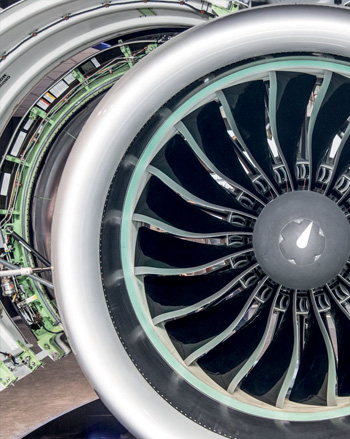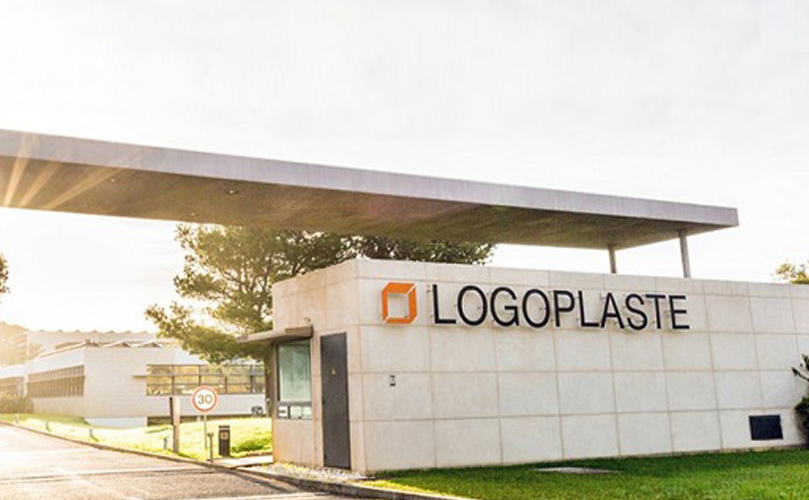GKN Aerospace’s inspection process ensures that each aeroplane component is flight-ready;
however, inspecting each part can take hours and requires highly skilled operators. GKN Aerospace
wanted to add automation into the process and turned to Fujitsu AI. The result is an augmented
defect recognition (ADR) solution that takes minutes rather than hours and provides wider access
to critical data for smarter decision-making.
Challenge
GKN Aerospace wanted to automate its defect recognition process using AI to save time, improve consistency and increase data value.
Solution
AI-enabled augmented defect recognition (ADR) solution.
Outcomes
- Completed inspections up to 60x faster
- Increased productivity by 50% due to greater throughput
- Empowered smarter decision-making with better data quality
- Improved wellbeing for operators, allowing more inspections to be handled safely.
Fujitsu is developing an AI-enabled ADR solution that will change how we build aeroplane parts.
Aaron Gilbraith, Project Manager, GKN Aerospace

50%
potential increase in
production throughput
- Industry: Aerospace manufacturing
- Location: Worldwide
- People: 17,000+
- Customer's website
About the customer
GKN Aerospace is a global Tier 1 aerospace supplier. In multiple factories across the UK it manufactures a range of complex carbon composite parts for aircraft manufacturers, including wing structures, empennages and fuselages. The company makes a variety of parts on production lines running from carbon cloth through to quality control. The company’s quality control processes are governed by international regulations and customer specifications.
Time-consuming but critical inspections
Manufacturing aerospace components demands the highest level of quality control – flaws in any item produced must be detected and eliminated to ensure safety standards. Traditionally, quality checks are performed by inspectors who can take between 30 minutes and several hours examining each part on the production line.
Moreover, each inspector must spend 1,400 hours training on the job before becoming certified, making it hard to attract new recruits. GKN Aerospace therefore wanted to entirely rethink the quality assurance process. It had already introduced automation elsewhere on the line and thought this could help speed up the process.
“Not only is it becoming hard to attract operators, the materials being inspected, such as carbon composites, are becoming more complex and take more time – it is the perfect storm,” explains Aaron Gilbraith, Project Manager at GKN Aerospace. “I began exploring what was available on the market and came across a case study that showed Fujitsu conducting AI checks on turbine blades – it proved Fujitsu had the skills and technology we were looking for.”
Augmented engineering
Fujitsu carried out two studies with GKN Aerospace to evaluate AI-based techniques that could enhance the capability of the NDT operators. The first phase used pulse-echo data as input; the second phase looked at through-transmission data. Both techniques were used in combination across a wide range of composite components. Fujitsu then developed AI models to locate and characterise discrete and non-discrete defects directly from raw ultrasound data, applying intelligent algorithms to data sources in multiple dimensions.
The result is a proof of concept that demonstrates that the AI platform can be taught to recognise defects quickly and accurately. The next step is to develop it into a minimum viable product on the shop floor. Scrum methodology, co-creation and collaboration will define the next stage of the project.
“Fujitsu gave us great confidence in the technology and worked closely with our operators to help define the decision trees that would guide the AI augmented defect recognition (ADR) solution,” adds Gilbraith. “It is clear that this new approach has the potential to transform our quality assurance process.”
Faster inspections, better data quality
GKN Aerospace expects the new AI platform to speed up throughput times by up to 50%, meaning it can produce more components in the same time. In addition, operators can take on a larger workload, offsetting the lack of new applicants.
Moreover, ADR will provide mechanisms to make the data more widely available, beyond the traditional operator siloes. This will allow it to easily spot repeating flaw patterns, for example, and get to the root of these defects.
“Pulling the data out of the testing silo saves time and helps us identify and eliminate defects. It also makes our reports more detailed,” concludes Gilbraith. “The ability to link the digital QA process to production process variables will further drive down costs while increasing control. Fujitsu is developing an AI-enabled ADR solution that will change how we build aeroplane parts.”








